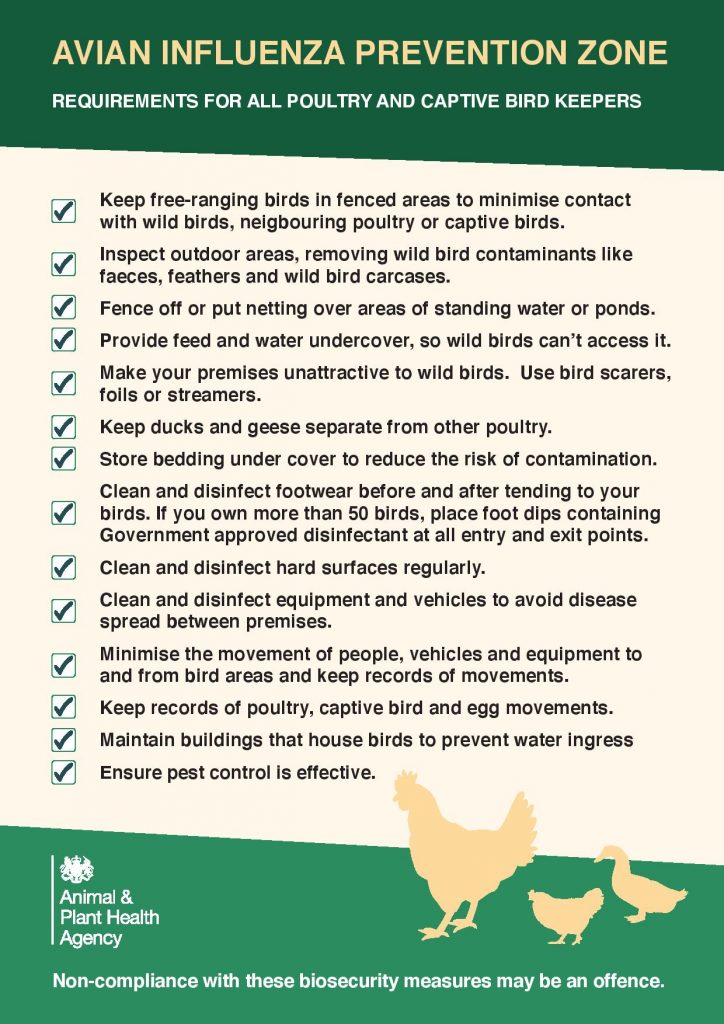On 17 October 2022 an Avian Influenza Prevention Zone was declared by the Government across the whole of England. This was because of the increased number of cases of the disease across the country.
All bird keepers (whether they have pet birds, commercial flocks or just a few birds in a backyard) are now required by law to take a range of precautions to protect their flocks. (Jeyes fluid is a Defra approved disinfectant for Avian Influenza).
There are minimum requirements for all bird keepers to follow. If your birds are not housed, they must be kept in fenced / enclosed outdoor areas. Precautions include (amongst others): feeding birds under cover where wild birds cannot access, preventing access by captive birds to ponds and watercourses, and effectively cleansing and disinfecting any hardstanding surfaces in areas where birds are kept.
Further enhanced measures apply for premises with over 500 poultry or other captive birds.
Full details of what is required can be found on the government website – www.gov.uk/guidance/avian-influenza-bird-flu#AIPZ
You can find a self-assessment checklist at the above link to help you put the measures in place, as well as more information about the virus.
You can keep up to date by regularly visiting the avian influenza section on the government website, and by registering for email or text alerts – www.gov.uk/guidance/apha-alert-subscription-service
Remember that if you have poultry/captive birds it is your responsibility to keep updated on any outbreaks and an easy way to do this is by signing up for text notifications – register with the APHA alerts service.
If you have any concerns about the health of your birds, you should promptly speak to your vet.
The risk to public health from the virus is very low, however it is important that people don’t pick up sick or dead birds. You can report finding dead wild waterfowl (swans, geese or ducks) or other dead wild birds, such as birds of prey, to the DEFRA helpline on 03459 335577.

